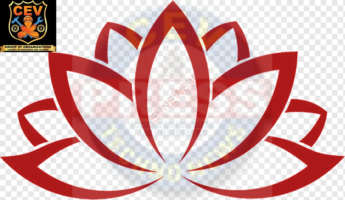CONCEPT OF DHARMA
Concept of Dharma
Dharma, an ancient and foundational concept in Indian philosophy and spirituality, encompasses a broad spectrum of meanings and implications. It is a term with deep roots in Hinduism, Jainism, Buddhism, and Sikhism, serving as a guiding principle for individuals, society, and the cosmos. Here, we delve into the multifaceted nature of Dharma and its significance in Indian culture.
1. Meaning and Essence of Dharma:
- Dharma, derived from the Sanskrit root “dhr” meaning to uphold or sustain, refers to moral law, duty, righteousness, and cosmic order.
- It embodies the inherent duty and responsibilities of individuals according to their roles in society, age, gender, and station in life (varna and ashrama dharma).
- Dharma is not merely adherence to rules but understanding the underlying moral principles and acting in harmony with them.
2. Moral and Ethical Framework:
- Dharma provides a moral compass for personal conduct, emphasizing virtues such as truthfulness, compassion, non-violence, and selflessness.
- It guides individuals in making ethical choices and navigating complex moral dilemmas, promoting harmony and balance in relationships and society.
- The concept of svadharma underscores the importance of fulfilling one’s own duty without attachment to outcomes, fostering inner growth and spiritual evolution.
3. Social and Cosmic Order:
- Dharma extends beyond individual conduct to encompass societal norms and institutions, aiming to maintain social harmony and stability.
- It upholds the hierarchical structure of society (varna dharma), emphasizing the complementary roles of different social groups (varnas) in sustaining the collective welfare.
- Dharma also encompasses the cosmic order (rita), governing the functioning of the universe and the interdependence of all beings.
4. Evolution and Interpretation:
- Over millennia, the concept of Dharma has evolved in response to changing social, cultural, and philosophical contexts.
- Various philosophical schools and religious traditions have offered nuanced interpretations of Dharma, leading to diverse perspectives on its meaning and application.
- While the core principles of Dharma remain constant, its interpretation allows for adaptation to contemporary challenges and the diversity of human experience.
5. Challenges and Controversies:
- The rigid enforcement of social hierarchy and caste-based discrimination have been criticized as deviations from the true spirit of Dharma.
- Conflicting interpretations of Dharma have led to debates and controversies, particularly regarding issues such as gender equality, animal rights, and environmental ethics.
- Balancing tradition with modernity poses challenges in reconciling ancient wisdom with the demands of a rapidly changing world.

6. Relevance and Revival:
- Despite challenges, the concept of Dharma continues to hold profound relevance in contemporary India, serving as a moral and ethical anchor in times of uncertainty and upheaval.
- Efforts to revive and reinterpret Dharma in light of modern values and global interconnectedness are underway, fostering dialogue and cross-cultural exchange.
- Embracing the universal principles of Dharma offers a pathway towards personal fulfillment, social justice, and ecological sustainability in the 21st century.
The concept of Dharma embodies a rich tapestry of moral, social, and cosmic principles that have shaped Indian civilization for millennia. As India navigates the complexities of the modern world, the enduring relevance of Dharma lies in its capacity to inspire ethical conduct, foster social cohesion, and illuminate the path towards a more just and harmonious society.


